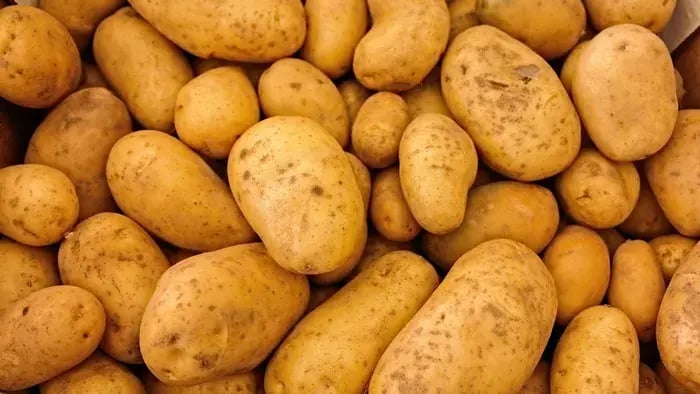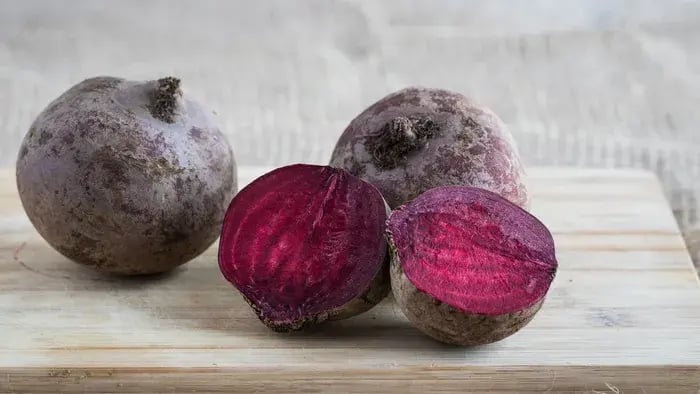- Ragi (Finger Millet)
- Amla (Indian Gooseberry)
- Potato
- Tomato
- Moong Dal
- Guava
- Methi (Fenugreek Leaves)
- Chana (Bengal Gram)
- Coconut
- Beetroot
Introduction
As a parent you want the best for your child, and one of the simplest ways to support their growth is through the food they eat every day. Good nutrition does more than just fill their tummies; it fuels their bones, sharpens their minds, strengthens their immunity and builds the foundation for a healthy future.

From a glass of fresh milk that strengthens bones to a bowl of warm dal packed with protein, the right foods can work wonders for your child’s growth. Seasonal fruits like mangoes, oranges and guavas bring in essential vitamins and natural energy while vegetables like carrots, spinach and sweet potatoes support everything from vision to digestion. Whole grains like wheat, rice and bajra provide long lasting energy and keep your child active and focused throughout the day.
Including everyday ingredients like curd, nuts, seeds and bananas in creative ways can make nutrition fun and exciting for kids. Giving your child the right start is easier than you think and can be a fun journey with colorful plates and smiling faces.
Foods that Support Optimal Growth of kids
You want to see your child grow up strong, active, and full of life. One of the easiest ways to support their journey is by filling their plate with nourishing, wholesome foods. From traditional staples like ragi and amla to everyday favorites like potatoes and tomatoes, these foods can make a real difference in your child’s overall growth,
Ragi (Finger Millet)
Ragi is one of the best natural sources of calcium, iron, and fiber. According to FSSAI, it strengthens bones, supports brain development, and helps maintain energy levels. You can easily prepare ragi porridge, ragi dosa, or even soft ragi idlis.
Amla (Indian Gooseberry)
As per a study published in, J Food Sci Technol 2015, amla is rich in vitamin C, amla boosts your child’s immunity, improves digestion, and promotes healthy skin and hair. You can offer it in simple ways, fresh amla pieces with a little salt, homemade amla candy, or as part of a chutney.
Potato

According to ICAR, potatoes are full of carbohydrates, potassium, and vitamin C. They provide the quick energy your active child needs for running, playing, and learning. Boiled, roasted, or made into a simple aloo sabzi, potatoes are comforting, filling, and always loved by kids.
Tomato
Tomatoes are rich in vitamin C, lycopene (an antioxidant), and potassium. As per a study published in, Biology (Basel) 2022, they support heart health, boost immunity, and keep skin healthy. Fresh tomato chutneys, rasam, tomato rice, and light tomato-based curries are simple ways to include them in daily meals.
Moong Dal
Moong dal is light, easy to digest, and full of protein and essential vitamins. According to a study published in, Nutrients 2019, it is especially good for younger children or when your child needs a gentle meal. Whether prepared as plain dal, khichdi, or even moong dal chilla, this versatile ingredient supports muscle development and energy.
Guava
Guavas are among the richest natural sources of vitamin C, even more than oranges. According to FSSAI, they boost immunity, improve digestion with their high fiber content, and strengthen gums and teeth. A simple bowl of sliced guava with a sprinkle of chaat masala can turn into a delightful and healthy snack for your child.
Methi (Fenugreek Leaves)
As per a study published in, Saudi J Biol Sci 2015, fresh methi is packed with iron, fiber, and vitamin K. It helps in digestion, boosts immunity, and strengthens bones. You can make methi paratha, methi thepla, or a mild methi aloo sabzi. Including methi regularly, especially during winter when it’s freshest, gives your child a wonderful natural boost.
Chana (Bengal Gram)
According to dietary guidelines for Indians, chana is rich in protein, fiber, iron, and B-vitamins. Whether it’s in the form of boiled black chana, chana chaat, or chana dal cooked into comforting curries, this ingredient fuels steady growth and keeps your child feeling full and focused.
Coconut
According to Coconut Development Board, it is packed with healthy fats, fiber, and minerals like manganese. It helps boost energy, supports brain development, and keeps digestion smooth. Fresh coconut can be added to chutneys, curries, and rice dishes.
Beetroot

As per a study published in, Food Sci Nutr 2021, beetroot is rich in iron, fiber, folate, and antioxidants. It helps build healthy blood, improves stamina, and supports brain function. You can grate beetroot into parathas, add it to salads, or even prepare a sweet beetroot halwa.
Conclusion
When you think about your child's growth, you don’t need fancy foods or complicated diets. Some of the best nutrition comes from simple, traditional foods you can find easily at your local market. Fresh fruits, green vegetables, nourishing grains, and natural snacks all play a role in building a strong, healthy, and happy future for your child.
Her love for storytelling began with reading her grandfather’s speeches, where Tarishi saw the power of words in creating lasting memories. Combining her passions for food and writing, she has turned her life into a fulfilling path of sharing stories that celebrate flavours and how food brings communities together.
The views expressed are that of the expert alone.
The information provided in this content is for informational purposes only and should not be considered a substitute for professional medical advice, diagnosis, or treatment. Always seek the advice of your physician or another qualified healthcare provider before making any significant changes to your diet, exercise, or medication routines.
References
https://pmc.ncbi.nlm.nih.gov/articles/PMC8565237/
https://coconutboard.gov.in/HealthBenefits.aspx
https://nin.res.in/downloads/DietaryGuidelinesforNINwebsite.pdf
https://pmc.ncbi.nlm.nih.gov/articles/PMC4894452/
https://www.fssai.gov.in/upload/media/FSSAI_News_Vitamin_GPlus_27_07_2020.pdf
https://pmc.ncbi.nlm.nih.gov/articles/PMC6627095/
https://pmc.ncbi.nlm.nih.gov/articles/PMC8869745/
https://epubs.icar.org.in/index.php/IndFarm/article/download/151961/54631/414093
https://pmc.ncbi.nlm.nih.gov/articles/PMC4648887/
https://www.fssai.gov.in/upload/uploadfiles/files/Guidance_Notes_Version_2_Millets_29_01_2020.pdf
















